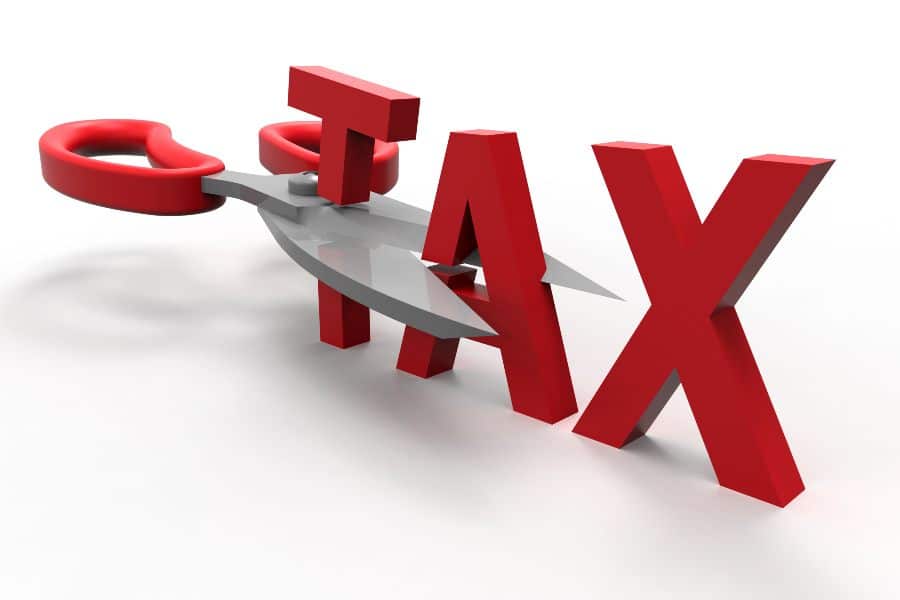If you own a business, you may be able to take the meals and entertainment deduction to lower your tax liability. Generally, you can deduct the cost of business-related meals and meals consumed while traveling overnight. Entertainment costs aren’t deductible. The purpose and beneficiary of the meal are primary factors in determining which expenses you can write off.
Meal Types That Can Be Deducted
Meals are tax deductible if the expense is commonly accepted in your industry and helpful for your business. Examples of permissible meals include taking a prospective client to dinner or meeting a supplier for drinks to negotiate a better price.
The following items qualify as meals eligible for a 50% deduction on your tax return:
- Business meals with clients at a restaurant
- Business meals with clients with food purchased from a grocery store
- Office snacks and meals purchased from a convenience store
- Office snacks and meals purchased from a restaurant
- Meals while traveling away from home overnight
- Client meeting with snacks purchased from a grocery store
There are also some instances where meals are 100% deductible on the tax return. Examples of these instances are as follows:
- Meals (included in the employee’s or contractor’s compensation)
- Meals at a company-wide party
Meal Types That Cannot Be Deducted
Any meal not described in the above section cannot be deducted. We’ve listed a few specific examples of nondeductible meals:
- Meals not separately stated from the cost of entertainment
- Customer meals where the taxpayer or employee isn’t present
- Employee meals while traveling for a day where no overnight stay is required
Entertainment expenses continue to be a disallowed deduction.
Standard Meal Allowance vs Actual Cost When Traveling
One type of deductible meal expense is meals eaten while you are traveling overnight. There are two methods that you can use to calculate your travel meal expenses:
- Standard meal allowance: This is the federal meals and incidental expense (M&IE) per diem rate. Lower rates apply for the first and last days. The standard 2024 rate for most locations is $59 per day, but this can be substantially higher for higher-cost areas. The US General Services Administration website lists these rates by location. The standard meal allowance is substituted for the actual meal expense and multiplied by 50% to arrive at the deductible portion.
- Actual cost: If you use this method, you must keep records of your actual costs.
Entertainment Deductions
The 2017 Tax Cuts and Jobs Act made some drastic cuts to entertainment expenses, many of which are no longer deductible even if the event is attended by the taxpayer and a customer and business is discussed. Generally, the IRS doesn’t allow businesses to deduct costs for entertainment, amusement, recreation, or a facility that’s used in connection with such activity.
However, meals where the cost is stated separately can be deducted if the business is discussed. If you can separate the cost of a meal and the event itself, and you have a receipt that separately states the meal expense, you can deduct the meal cost at 50%.
Meals included in the cost of an entertainment event—but not separately stated—cannot be deducted even if a reasonable estimate of the cost can be made.
Entertainment That Can Be Deducted in 2024
Here are two examples of entertainment that can still be deducted:
- Entertainment expenses that are compensation to the person and are reported on Form W-2 for an employee or Form 1099-NEC for an independent contractor. The payments should be shown on the tax return as wages or contract labor, not entertainment.
- Events, such as company picnics or holiday parties, which are held for the benefit of the employees.
Entertainment That Cannot Be Deducted in 2024
Here are a few examples of entertainment expenses that aren’t eligible for tax deductions:
- Tickets to the theater, concerts, and other similar activities
- Fees for outdoor activities, including fishing, hunting, and sailing outings
- Business entertainment expenditures at a social club, golf club, or similar venues
- Sporting events tickets, including skybox expenses and transportation to the event
- Contributions to educational organizations for the right to purchase tickets to athletic events
Note that while business entertainment expenditures related to social clubs or golf clubs are considered nondeductible entertainment expenses, memberships to professional, civic, or public service organizations are deductible. So while a membership to an airline club or country club would be a nondeductible entertainment expense, a membership to a chamber of commerce or Kiwanis club would qualify as deductible.
Frequently Asked Questions (FAQs)
Examples of deductible meals include ones served at company parties, consumed by employees while staying overnight on business, and served while discussing business and invoiced on separate receipts. Entertainment expenses are generally nondeductible.
Entertainment expenses are generally not deductible. However, exceptions are made for entertainment expenses included in a worker’s compensation or for events held for the benefit of employees. These excepted entertainment expenses are fully deductible.
Yes. Meals expensed by Department of Transportation (DOT) employees are deducted at 80% instead of the standard 50% rate. Examples of DOT employees include interstate truck and bus drivers who are subject to DOT regulations and specific air transportation employees.
Bottom Line
While entertainment is still generally nondeductible, businesses can generally deduct 50% of meal expenses. It’s important to review the nuances of the meals and entertainment deduction to fully understand the tax breaks that you’re eligible for as a business owner.


